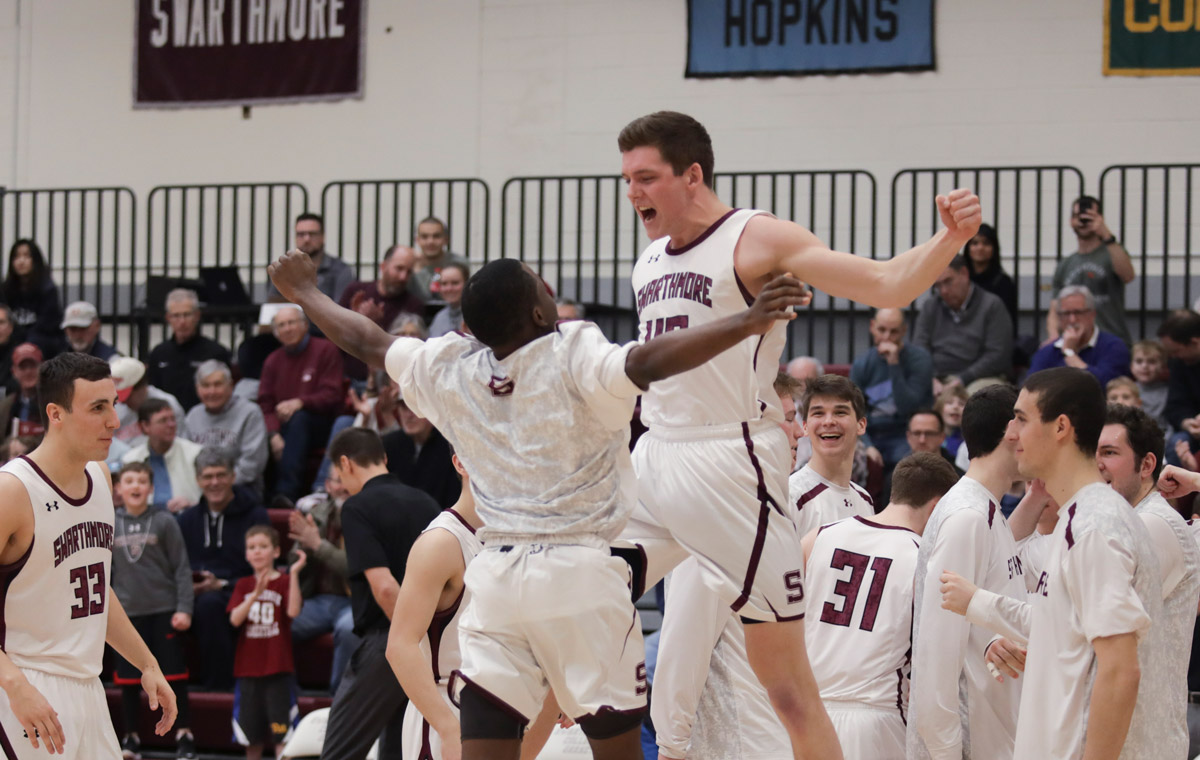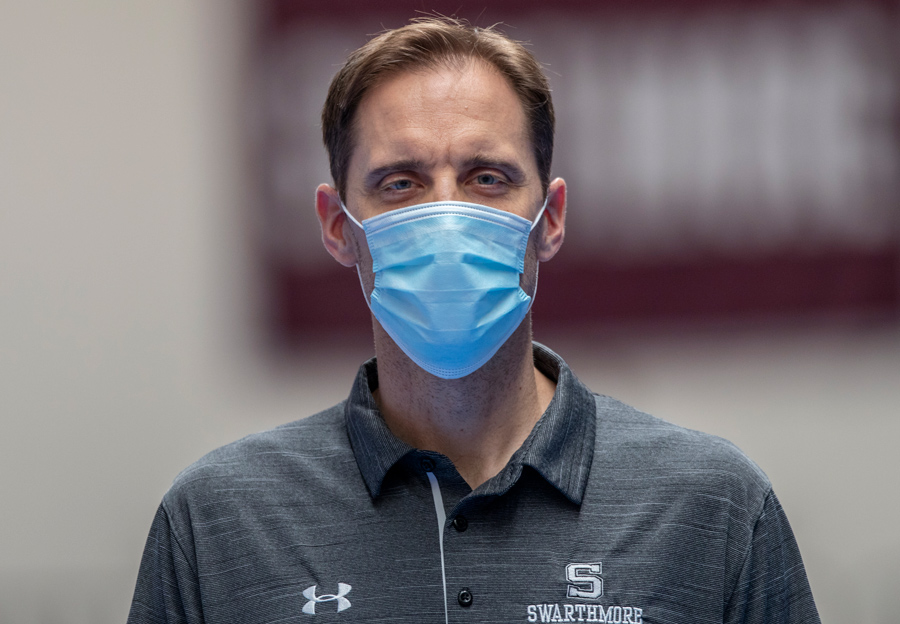
ith one more win, the Swarthmore men’s basketball team would have spent the weekend after spring break in Fort Wayne, Ind., preparing for the quarter- and semifinal rounds of the NCAA Division III Tournament. The list of accomplishments from 2019–20 alone was long: the team was ranked first in Division III for the entire season with a sterling 28–1 record, a National Coach of the Year award for head coach Landry Kosmalski, National Rookie of the Year honors for Vinny DeAngelo ’23, and All-American status for team captains Zac O’Dell ’20 and Nate Shafer ’20.
The Garnet were no strangers to Fort Wayne’s Allen County War Memorial Coliseum, the site of last year’s loss in the national championship game. Two more wins would have meant a second try at a title, this time in Atlanta in an NBA arena. The media, including The New York Times, took notice.
The Garnet, the last undefeated men’s basketball team in all NCAA divisions this year, seemed poised to make another deep run into the postseason.
But everything changed on March 12, a surreal day for Kosmalski.
Early that Thursday morning, Kosmalski became concerned by news of potential coronavirus cases at Whitworth University, Swarthmore’s third-round opponent, and decided with his staff that playing the game was not in the best interest of health and safety. After hours of refreshing Twitter and watching the cancelations of major Division I conference tournaments, he met with his team at 4 p.m. to tell them their season was over.

“It was devastating in the moment,” says Kosmalski. But he did not want his players to dwell on the opportunities they had lost.
The official cancelation announcement from the NCAA came around 4:15 p.m., which Kosmalski learned of when a wave of texts appeared on his phone, silenced during his short drive home. He returned to campus to find the team still in the locker room. The greatest season in Garnet program history — which saw the team win 26 consecutive games and sit atop the national rankings for the entire year — would have to end off the court without a sense of resolution, what-ifs hanging in the air like a last-second shot that seems to move in slow motion.
“I told the team that this is bigger than us and all of basketball,” says Kosmalski. “They could see that it was affecting everyone in our sport, and all sports, and I think that helped them gain some perspective pretty quickly.”
“I am grateful we were all together as a team when we got the news,” adds O’Dell, a forward from Schenectady, N.Y. “While we would have rather had our season end on the court, being all together in the locker room provided some level of comfort and closure to the season.”
This culture of positivity is part of a deliberate effort by Kosmalski, and the team’s buy-in has been instrumental to the program’s success over the past five seasons. But these achievements, though impressive, were merely “icing on the cake” when compared with the opportunities players had to build bonds and grow the program, Shafer says.
“None of our habits, none of our process goals were ever driven by wanting to win a game or a tournament,” he says. “Getting a certain ranking or scoring however many points wasn’t what made this special. It’s the mundane things, like going through daily practice or spending time together in Sharples, that made this group of people and season really meaningful for me.”
With the tournament canceled, more immediate concerns rose to the forefront. For Alec White ’21, it meant driving more than 40 hours across the country to get home to Southern California. Fort Wayne and Atlanta were traded for Nashville and Dallas, where he dropped off and picked up a teammate and his sister, respectively. A sublime highlight of his cross-country trek was the desert view outside Albuquerque, about 14 hours from the final destination.
“The horizon was so clear,” he recalls. “And the stars seemed unbroken and endless.”
Amid the fear and uncertainty throughout the sudden end to the season, White found some comfort in the night sky. A reminder, they were all a part of something greater than themselves.